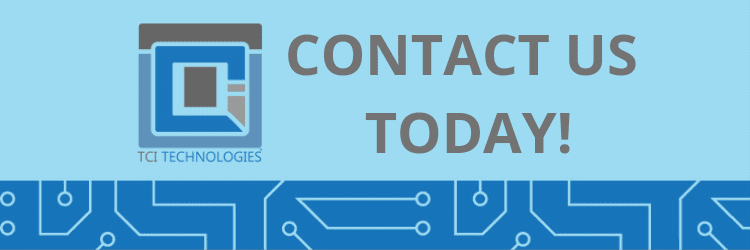As a business owner, you wear many hats, balancing the needs of your customers and employees while keeping daily operations running smoothly. One critical aspect that often gets overlooked is your network infrastructure. This is the keystone of your organization’s communication, and any interruptions or lengthy shutdown can be detrimental to your operations. Let’s discuss how to evaluate your network’s needs, recognize signs of trouble, and when to consider making upgrades.
How Does Your Network Infrastructure Affect Your Business?
Your network infrastructure contains all the hardware, software, and services that enable connectivity within your organization. This includes components like routers, switches, software, and firewalls. When your network works efficiently, it supports essential business functions, from emails and cloud storage to online transactions and remote collaboration. However, unexpected disruptions can lead to downtime, lost revenue, and potential damage to your reputation.
Recognizing the Trouble Signs

Here are some common trouble signs that indicate your network infrastructure may need some immediate attention:
- Security Issues: Unauthorized access, unusual traffic, malware infections
- Connectivity Problems: Frequent connection errors, dropped connections, unrecognized devices on the network
- Bandwidth Issues: High utilization, unexplained spikes in usage, consistently slow speeds
- Device Health: Outdated firmware, low battery life, persistent error messages
- Configuration Issue: Misconfigured firewalls, improper network segmentation, DNS/DHCP errors
- Physical Infrastructure Concerns: Damaged cables, unusual noise/odors, power outages affecting network performance
- Irregular User Behavior: Unauthorized access attempts, use of unapproved devices, unusual activity patterns
Anything Other Than 24/7 Network Monitoring Isn’t Really Monitoring

Your network infrastructure is in constant use and always at risk. Here are 6 reasons why having the proper monitoring tools in place is essential for keeping your business secure and running smoothly:
1. Threat Detection
Cyber threats are becoming increasingly sophisticated. Advanced monitoring tools can identify unusual patterns or glitches in network traffic that may indicate a security breach.
2. Real-Time Response
Professional monitoring allows for immediate response to incidents. By quickly addressing threats, organizations can minimize potential damage and reduce recovery time.
3. Data Breach Prevention
Monitoring can help prevent data breaches by enforcing access controls, protecting sensitive information, and strictly following security policies.
4. Network Performance Monitoring
Tracking network performance allows IT teams to identify bottlenecks, optimize resources, and ensure high availability for critical applications.
5. 24/7 Coverage
Cybersecurity threats can arise at any time. Professional monitoring services often provide round-the-clock surveillance, ensuring that threats are addressed promptly, regardless of when they occur.
6. Cost Savings
Investing in security monitoring tools and services can ultimately save money by preventing costly data breaches and minimizing downtime due to security incidents.
Outsource Your Network Maintenance
Small and medium-sized businesses often struggle to implement and maintain networks on their own. Without the expertise of trained professionals, valuable time that should be spent on core business operations is lost.
Hiring a professional IT and cybersecurity company, like TCI Technologies, provides the expertise and resources needed to maintain security systems, monitor for threats 24/7, and ensure quick incident response. Outsourcing to TCI will help ensure your network infrastructure is operating flawlessly.




